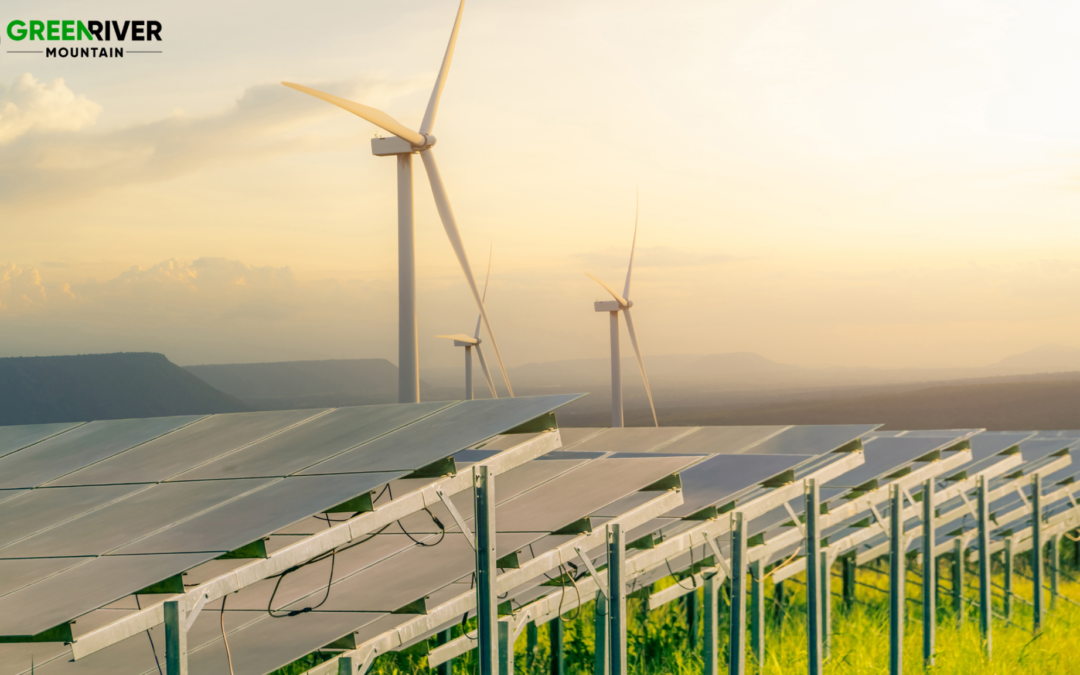Solar power has recently boomed as sustainable and cleaner energy sources become increasingly popular. Solar farms – vast areas of solar panels using the sunlight’s energy – are at the forefront of this green energy revolution. Solar power is undoubtedly a major player in walking the path of sustainability, with solar farm investment being a major concern. Solar farms and stock investments offer investors a wonderful opportunity.
An Introduction to Solar Farm Investments: Basic Ins and Outs
Solar power can generate electricity without fuel costs, global warming pollution, and risks of fuel expense hikes. It can also help the world transition to a cleaner, less expensive, and more reliable source of energy.
A solar farm is a massive collection of PV or photovoltaic solar panels absorbing energy from the sun. It converts it into energy before sending it to power grids for distribution and consumption by everyone. These farms are mounted onto the ground and are available in various sizes and shapes. Basically, there are two types of solar farms: (1) utility-scale and (2) community solar.
● Utility-scale farms are the massive ones offering power to large-scale areas
● Community-scale farms are smaller, powering small communities
Investing In a Solar Farm: Is it a Good Opportunity?
The challenges associated with climate change and the demand for sustainable energy sources make solar farms a beacon of hope for investors. Investing in solar farms helps an investor become more environmentally responsible. The decision also has some financial benefits. Investors seeking exclusivity and sustainability can consider solar farm investments.
Here are some of the prime advantages:
● Solar farms can support natural sources of energy while reducing the nation’s dependence on fossil fuels
● Solar farms utilize the sun’s energy to generate electricity, producing zero greenhouse gas emissions (so it reduces carbon emissions)
● This type of investment offers predictable and stable returns
● The sun offers limitless energy, and solar panels have 25-30 years of lifespan
● The US government offers tax benefits for solar farm investments
● In locations where there is ample sunshine, these farms generate income throughout the year
● Adding a renewable energy asset to your portfolio reduces exposure to the volatility of conventional investment (hence diversifies your portfolio)
Investing in solar farms supports the transition to renewable energy. As mentioned above, solar farms consist of two types:
Utility-Scale Solar Power
The utility-scale solar farms are massive areas of land with solar panels. This type of installation comprises solar panels, which absorb the sun’s energy. By absorbing the energy, it generates the electric current and distributes that power to the high-voltage power lines. The electricity passes through these power lines to the grid.
Community Solar Farms
Compared to utility-scale solar power, community solar farms are small-scale solar ones generating around 5MW of electricity for a community of businesses and homes. This power is shared amongst everyone participating in the program. Based on the residents and production amount, residents may enjoy a reduced utility bill with such a solar project.
Tips to Consider Before You Invest in a Solar Farm:
For those exploring the enticing world of solar farm investments, it’s essential to keep a few key factors in mind. If you’re new to this arena, we strongly recommend seeking guidance from a registered investment advisor and a qualified tax professional before making any investment decisions.
- Long-Term Strategy: Consider your long-term investment strategy, as solar farms typically offer returns over an extended period.
- Regulations and Incentives: Understand local and national regulations related to solar energy and any available financial incentives or subsidies for solar farm investments.
- Economic Viability: Evaluate the economic viability of the solar farm, including projected returns, operational costs, and the payback period
- Risk Assessment: Carefully assess the risks involved, including market volatility, technology changes, and potential weather-related disruptions
Green River Mountain (GRM) is an alternative investment sponsor dedicated to preserving wealth while fostering a more sustainable future. The information provided is of the opinion of Green River Mountain for educational purposes only, and is not intended as investment advice. GRM does not offer advisory services. Green River Mountain provides access to diverse investment opportunities not available in REITs or funds, and charitable donations that align with sustainable practices. Green River Mountain offers alternative investment opportunities with diversification benefits to institutional and accredited private investors through registered broker dealers and wealth management advisory firms.
